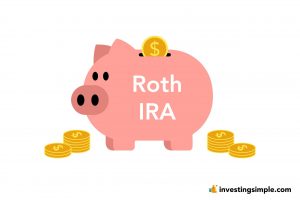Investing in real estate with a Roth IRA can be a smart financial move because it allows your investments to grow tax-free, and qualified withdrawals in retirement are tax-free as well. However, there are several rules and considerations you should be aware of.

1. Self-Directed Roth IRA: To Invest in real estate with a Roth IRA, you will typically need a self-directed Roth IRA. This allows you to have more control over your investment choices compared to a traditional Roth IRA.
2. Prohibited Transactions: The IRS has strict rules about what you can and cannot do with a self-directed Roth IRA. You cannot use it to buy property for a primary residence, or to benefit you, your spouse, or certain family members.
3. Unrelated Business Income Tax (UBIT): If your Roth IRA generates rental income or profit from real estate activities, you may be subject to UBIT. This tax applies when the income is generated through an actively managed business with the IRA. There are exceptions and thresholds, so it is crucial to consult with a tax professional.
4. Qualified Custodian: Your self-directed Roth IRA must be held by a qualified custodian, which is a financial institution that specializes in self-directed retirement accounts.
5. Liquidity: Real estate is not easily converted into cash compared to other investments. You cannot easily access the funds in your Roth IRA if they are tied up in real estate.
6. Due Diligence: Be diligent in your real estate investment decisions. Conduct thorough research, property inspections, and work with experienced professionals to ensure you are making wise investment decisions.
7. Contributions and Limits: Your annual Roth IRA contribution limit still applies, and it cannot be used solely for real estate investments. The contribution limit for 2023 is $6,000, or $7,000 if you’re over 50. This means that you need to balance your real estate investments with other assets in your Roth IRA.
8. Asset Valuation: The IRS requires annual valuations of assets held in a self-directed IRA. It is important to have a process in place to determine the value of your real estate investments accurately.
9. Record Keeping: Maintain meticulous records of all transactions and activities related to your real estate investments within the Roth IRA.
10. Consult a Professional: Due to the complexity of self-directed Roth IRAs and the potential tax implications, it is highly recommended to consult with a tax advisor, financial advisor, or an attorney who specializes in self-directed IRAs and real estate investments.
Investing in real estate with a Roth IRA can be a powerful way to diversify your retirement portfolio, but it requires careful planning and action of IRS rules and regulations. Be sure to seek professional guidance to ensure you’re making informed decisions within the boundaries of the law.

Karen Foster
eXp Commercial, License #01233949
Off: 855.451.1236 x413 Cell: 310.654.0178

Recent Comments